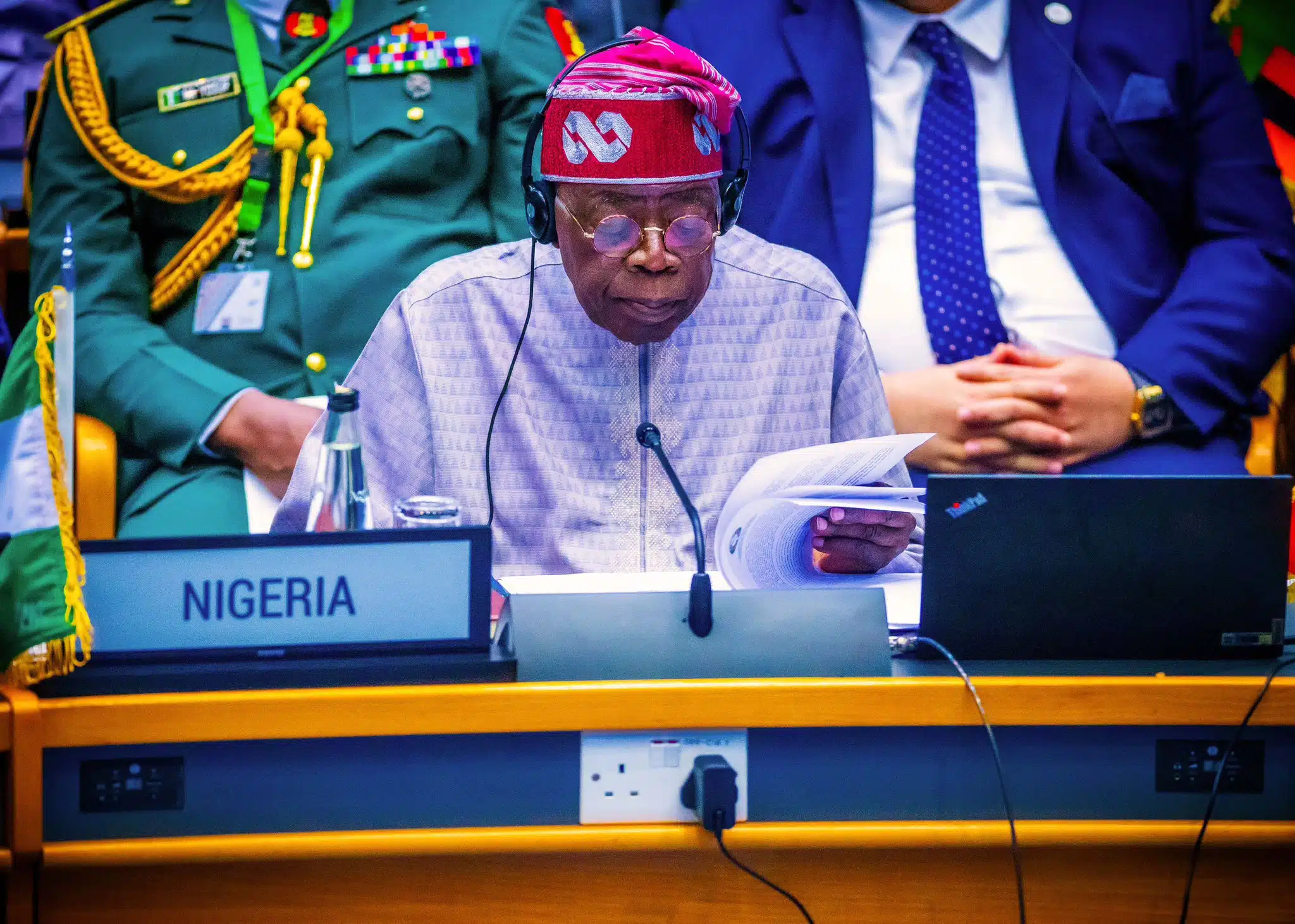Aso Rock Watch
ASO ROCK WATCH: Tinubu’s drums of war in Niger. Two other talking points

Last week, President Bola Tinubu, who is the Chairman of the Economic Community of West African States (ECOWAS), wrote to the Senate seeking their approval for a military intervention in Niger Republic.
We tracked two other stories from the seat of power, Aso Rock villa, within the week under review.
1. Drumming up war in Niger
On August 4, Tinubu, in a letter, informed the Senate of the decision of the ECOWAS to militarily intervene in Niger Republic, if the coupists that ousted President Mohamed Bazoum failed to reinstate him.
“Military build-up and deployment of personnel for military intervention to enforce compliance by the military junta in Niger should they remain recalcitrant to the ECOWAS communique,” the letter noted in part as an action point to deal with the coup.
Tinubu’s swiftness to push ECOWAS’ option of a military intervention without, firstly, exhausting all diplomatic options may have exposed his inexperience in handling international crises of this nature.
While it demonstrates ECOWAS’ strong interest in maintaining democracy in the sub-region, it calls to question why the organisation did not consider any military intervention, especially in Mali, Burkina Faso, and Guinea that had had military takeovers in the past few years.
The President’s letter, however, raises different posers begging for answers:
i. Did Tinubu consider the highly over-stretched Nigerian Army before admitting the option of a military intervention?
ii. Is Tinubu fighting a proxy war for France – Niger’s former colonial masters – who are strongly opposing the coup?
iii. Did the President consider the financial implication of going to war as Nigeria seems financially incapable amidst her economic woes?
iv. Is the Niger Republic crisis not an unnecessary distraction for Tinubu who is already overwhelmed with a plethora of Nigeria’s socio-economic challenges?
v. Did the President consider the effect of war on already troubled northern states that share boundaries with Niger Republic?
All eyes are fixed on Tinubu to see how far his threat of war, and other sanctions could force the already hardened military junta to reinstate Bazoum.
Two other talking points
2. Defending 2023 presidential election
Tinubu, on August 3, again, insisted that the February 25 presidential election that brought him to power was free, and fair, noting that those who were still fighting the outcome of the election did not deserve the joy of victory.
READ ALSO:ASO ROCK WATCH: Dealing with rising queue of hangers-on. Two other talking points
The President stated this in his address during a meeting of the National Executive Committee that produced former Governor of Kano State, Dr Abdullahi Ganduje and Spokesperson for the ninth Senate, Senator Ajibola Basiru, as the new national chairman and secretary of the All Progressives Congress (APC), respectively, in Abuja.
“Yes, we are facing challenges in court and I say this is one of the freest and fairest elections in the history of Nigeria. As a democrat, those who cannot accept the result of a free and fair election, do not deserve the joy of victory,” he said.
Tinubu’s remark marks a continuous attempt to dismiss alleged dark spots of the electoral process that saw him climb to power.
It largely confirms that the President is not finding it rosy with the constant national, and international calls on the legitimacy of his victory at the presidential polls.
It must be said that the strenuous defense continues to beg documentary evidences of electoral thuggery in the far flung states of Lagos, including Plateau, Kano, Edo, Rivers, among other states.
3. Dealing with obstacles to stable electricity
On August 4, Tinubu vowed that he would deal the obstacles militating against stable electricity supply in the country, despite the current rate of energy supply.
He stated this at the ground breaking ceremony of the new 350MW Gwagwalada Independent Thermal Power Plant (Phase 1), in Abuja.
“Although the Nigeria Electricity Supply Industry (NESI) is currently characterized by huge supply-gap deficits owing to dilapidated power infrastructure and poor distributions networks, amongst others, this administration is poised to address every power value chain challenge that will significantly relieve the suppressed demand, enhance generation and improve national peak growth and sustainability far above the hitherto abysmal and unacceptable 5,300MW for over 200 million Nigerians.”
Tinubu’s vow bears the regular trade mark of fine but unfulfilled promises which have characterized intervention in the electricity sector by past and present administrations.
Though the salient issues raised confirm his knowledge of the key fault-lines in the power value chain, a missing point appears to be the non-reflection of corruption in the President’s treatise. Without dealing with this monster, Tinubu’s recipe for success in the power sector may remain a mirage.
Join the conversation
Support Ripples Nigeria, hold up solutions journalism
Balanced, fearless journalism driven by data comes at huge financial costs.
As a media platform, we hold leadership accountable and will not trade the right to press freedom and free speech for a piece of cake.
If you like what we do, and are ready to uphold solutions journalism, kindly donate to the Ripples Nigeria cause.
Your support would help to ensure that citizens and institutions continue to have free access to credible and reliable information for societal development.

























